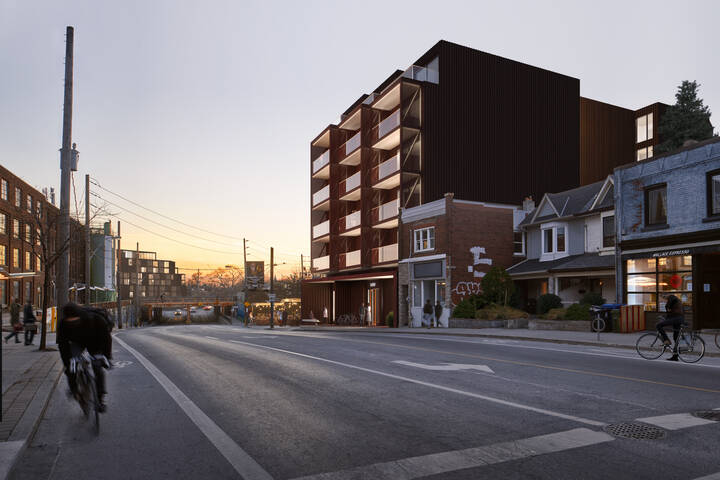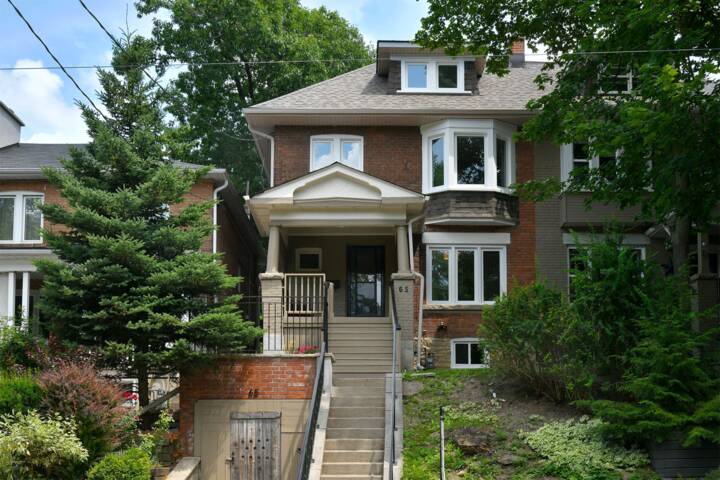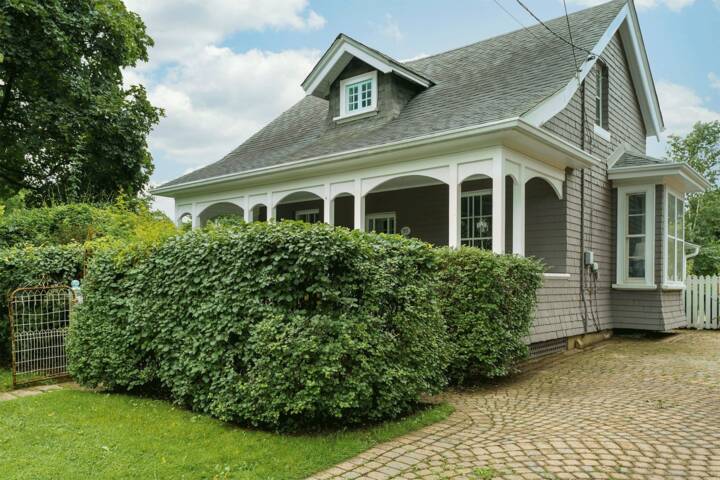
现在人们争相租用小公寓wntown Toronto again
Not long after COVID-19 hit and forced most Toronto office employees to start working from home, people living in cramped downtown condos got the bright idea toleave the cityand rent (or even buy) a bigger place for less money somewhere else.
What's the point of living in one of Canada's most-expensive cities, after all, when you no longer have to leave the house to make money?
The pandemic and its impacts on work did afford many young Torontonians the ability to buy their first homes (something that'spretty much impossibletodo in the city anymore.)
Whether they flocked to the country,the suburbsorsmaller citieslikeGuelphandBurlingtonto buy, at least some of these people are now facing the possibility of lengthy commutes whenthey're called back to the office.
And they will be called back to the office, ifwhat major employers are sayingis any indication.
The possibilities of a hybrid workplace have helped shift occupiers’ mindset from “will we ever return to the office?” to “when and how will we return?” Read about the shift in@blogto, featuring Avison Young’s latest GTA Office Market report.https://t.co/sljqJFuT08
— Avison Young | Ontario (@AvisonYoungON)July 20, 2021
As restrictions lift, the City of Toronto is actively trying to help businesses prepare to come back downtown. While some companies, such as Shopify, havecommitted to a permanent work-from-home model, many have not — nor do their employees want them to.
A lot of peopleactually miss the office, sometimes to their own surprise, and recent surveys show that nearly80 per cent of Canadian office workersare now in favour of a "hybrid model" where they can attend a physical workplace at least part time.
Those who left Toronto to rent large, cheap apartments outside the core must now decide between a hellish (albeit perhaps not daily) commute, quitting their jobs entirely, or moving back downtown.
New data fromUrbanationsuggests that a sizeable number of renters are doing the latter — only this time, they're able to score apartments more easily and for less money, thanks to a rental market that (while nowsort of recovering) wasdecimated by the COVID pandemic.
"The GTA rental market recovery began in earnest during the second quarter, with a surge in leases, reduced vacancy, and an increase in rents as lockdown measures began to ease," readsa Q2-2021 rental market analysisfrom Urbanation Inc., which has been tracking local condo and apartment markets since 1981.
"Remarkably, downtown Toronto led the growth in rental activity in Q2 as the mass vaccination rollout and gradual reopening of the economy during the second quarter combined with attractive rent discounts to bring renters flooding back into the core."
GTA Rental Market Recovery Takes Hold in Q2https://t.co/wdvUQPfTvvpic.twitter.com/pPvtQ6RflA
— Urbanation Inc. (@Urbanation)July 19, 2021
Vacancy rates, whichhit a 50-year high in Torontoduring the pandemic's peak, actually dropped during the second quarter of 2021 by Urbanation's estimates.
The firm's survey of "newer purpose-built rental apartment projects that have been completed in the Greater Toronto Area since 2005" showed a vacany rate of 5.2 per cent at the end of last quarter, down from 6.5 per cent the previous quarter (but still well up over the 2.7 per cent vacancy rate noted during the same time period last year.)
The drop invacancy ratesis particularly noteable given the relatively high number of new purpose-built rental units hitting the market last quarter: With 1,242 more apartments ready for occupancy, Toronto boasted its second-highest quarter total for what Urbanation calls "new supply additions" in more than 30 years.
所有的分析和咨询公司说this new supply — all of it in the City of Toronto proper — was met with "a high level demand."
To wit, lease activity is way, way up compared to the previous quarter, and more than double what we saw one year ago, surging 108 per cent (12,747 units leased) to set a new high for any Q2 on record.
"Demand in the latest quarter was driven by the former City of Toronto (largely representing the downtown market), where the number of new leases signed grew 129% year-over-year in Q2," reads the Urbanation report.
"The 7,642 condo lease transactions in the former City of Toronto represented a record high share, indicating a migration of renters back into the core."
As companies ask employees to come back to the office (even for 2 days a week), many people will learn there's a high cost to moving farther away from work. For one, the cost (money & time) commuting is enormous. I can imagine a lot of buyer's remorsehttps://t.co/8vAnegmEd9pic.twitter.com/eB0vYJEKyo
— Mark Evans (@markevans)June 14, 2021
Interestingly enough, it's tiny studio apartments that are seeing the fastest growth in demand for rentals — the same type of units that late last yearwere flooding Toronto's real estate market.
"Renters have remained budget conscious during the initial stages of the market recovery and haven't necessarily been seeking more space coming out of the pandemic," writes Urbanation.
"Studios, which experienced the sharpest drop in rents during COVID-19, recorded the strongest annual growth in lease transaction volume of 154 per cent in Q2. More generally, the smallest condo rentals under 600 sf represented a record high share (36 per cent) of units leased in the second quarter."
As a result of this, the average size of any condo unit leased in a second quarter fell to a new record low of just 695 square feet.
"The GTA rental market began to resemble pre-COVID times during the second quarter, which is a testament to a strong foundation of demand that will only grow going forward as immigration recovers, schools and offices reopen, and expensive ownership housing leads to greater levels of renter household formation," says Urbanation's president Shaun Hildebrand.
"While new construction activity is also on the rise, the level of supply underway is expected to lag behind demand, creating conditions for rents to continue rising towards pre-covid levels and beyond in the months to come."
Latest Videos
Latest Videos
Join the conversationLoadcomments







